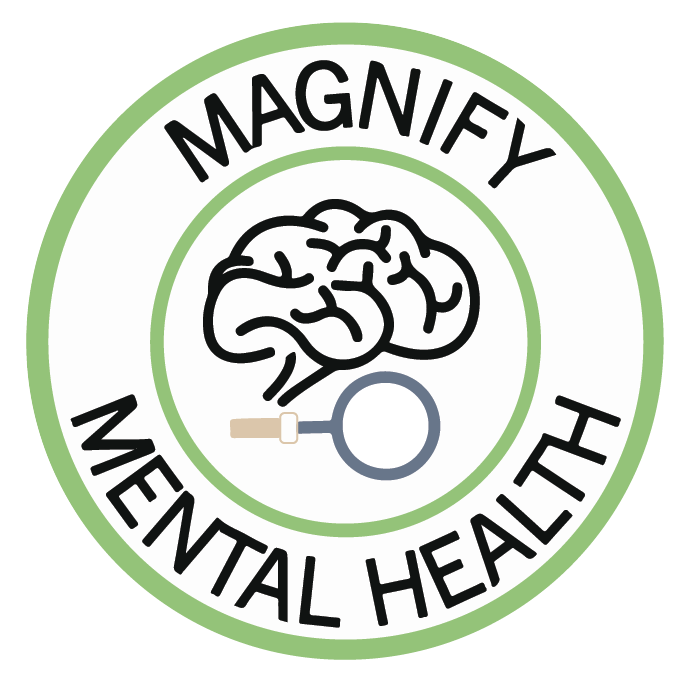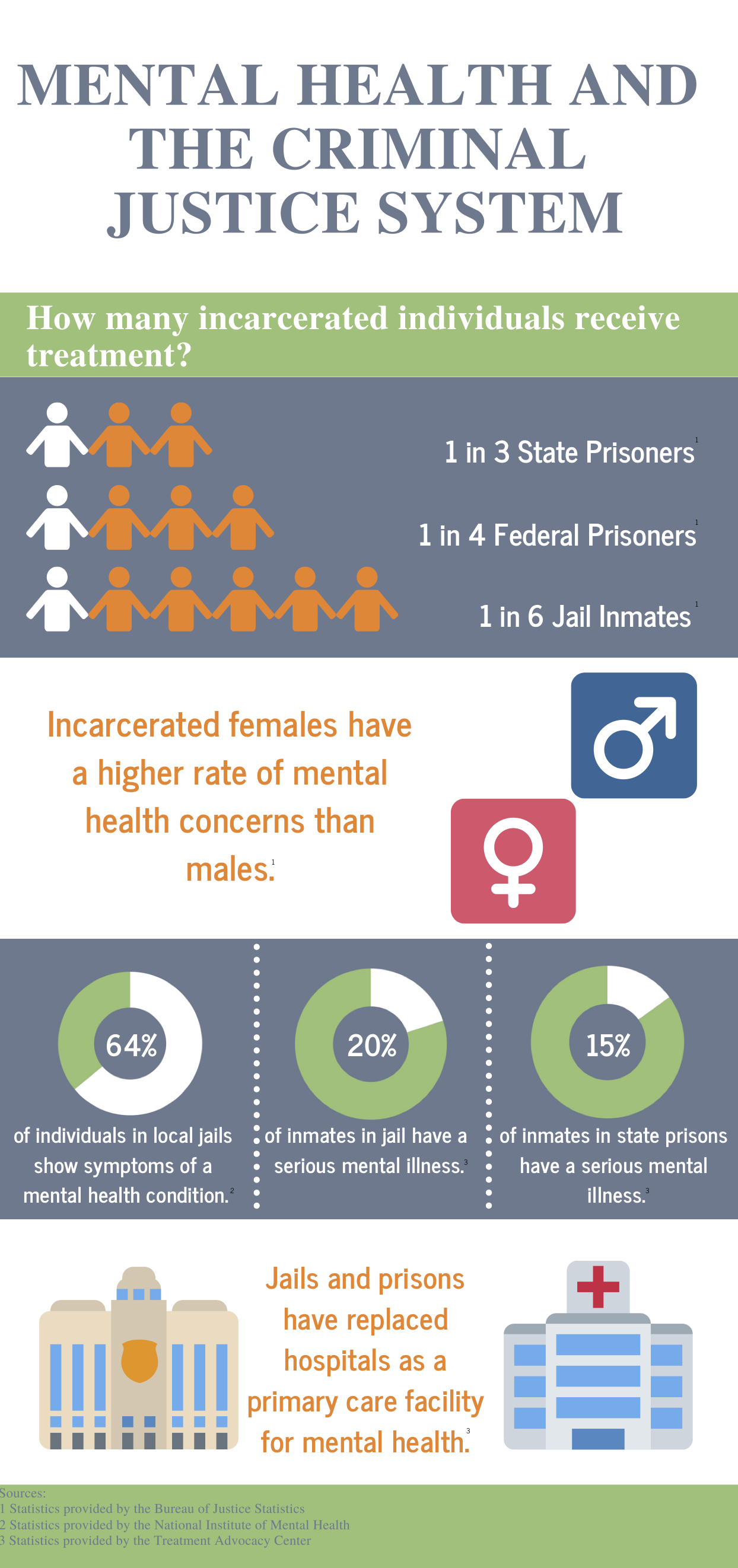Mental Health and the Justice System
Produced by: Ryan Brong
America's jails have become the largest mental health institutions in the country. Programs like mental health courts are attempting to divert mental health consumers from prison, but the incarceration rate of individuals living with a mental illness is still staggering.
Justice for Mental Health
The Justice System of the United States plays a crucial role, when it comes to mental health. People living with severe mental illness often fall into the criminal justice system. According to the Treatment Advocacy Center, 20% of inmates in jails and 15% of inmates in state prisons are living with a serious mental illness. According to a 2018 Bureau of Justice study, at the end of 2016, 2.2 million people were incarcerated in jails and prisons. Based on those numbers, approximately 770,000 people are living with some form of mental illness, while being incarcerated.
Access to treatment in the prison system can be limited, and people are not given the treatment they need. In some cases, sitting in a prison cell only deteriorates a person’s condition. Diversionary programs are in place to help someone who is deemed fit to stand trial. But for someone who is identified as not fit to stand trial, it’s a whole different story. A person living with a mental illness who is unfit to stand trial, is put on a waitlist to receive treatment, in order to regain competency for trial. The waitlist for treatment could be between 6 months to a year. During that time on the waitlist, the person sits in prison without receiving proper treatment.
Created by: Emma Rodner-Tims
Mental health within the criminal justice system can be overlooked. There is a large population of Incarcerated individuals that need treatment and resources for their mental health. And because of the lack of resources outside of jails and prisons, individuals seek out treatment while they are serving their time.


This work is licensed under a Creative Commons Attribution-NonCommercial-NoDerivatives 4.0 International License.


